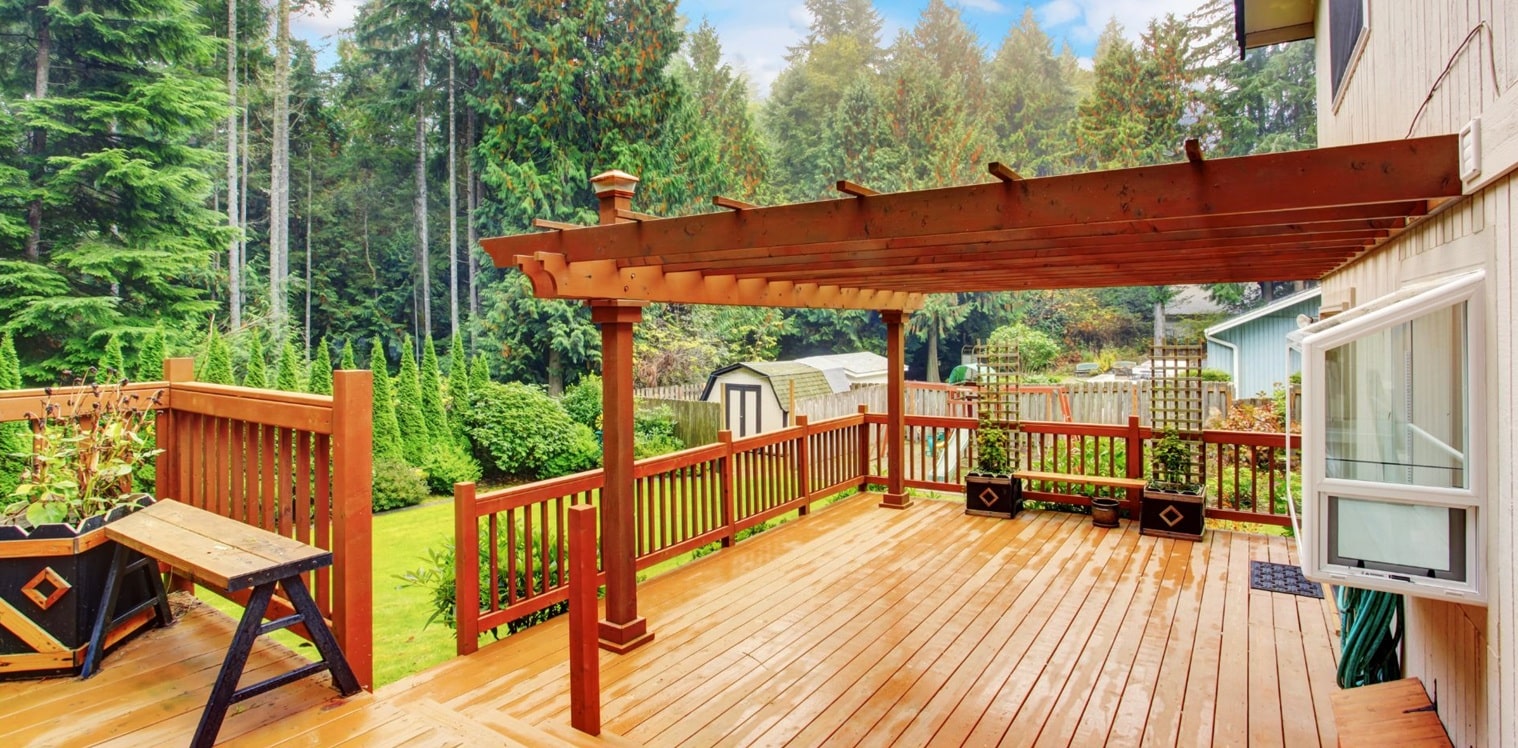
Pergola Shade Ideas: How to Keep Guests Cool Without Losing Natural Light
Thinking about installing a pergola but worried it’ll turn your living room into a cave? You’re not alone — one of the most common concerns among homeowners is whether a pergola will block too much natural light.
But here’s the truth: a pergola doesn’t have to darken your home. With the right design choices, it can offer shade where you need it and still let the sunshine in. In this guide, we’ll show you how to create a light-friendly pergola by paying attention to sun angles, roof types, smart placement, and a few insider tricks that make all the difference.
How Pergolas Affect Natural Light
Pergolas are more than just pretty structures — they interact with light in subtle ways. From soft dappled shade to full sun-blocking coverage, the outcome depends on how they’re designed.
Let’s break down the main factors that influence how much sunlight your pergola lets in.
How the Sun’s Shifting Angles Change Everything
The sun’s position in the sky changes with the seasons — and so does the shade your pergola casts.
- In summer, the sun sits higher, which means pergola shadows are shorter and less likely to stretch indoors.
-
In winter, the sun dips lower, creating longer shadows that can creep into your living room or kitchen.
✅ Key takeaway: The lower the sun, the more impact your pergola has on indoor light. Plan accordingly if you want year-round brightness.
Face It Right: Placement Matters More Than You Think
Where you place your pergola in relation to your home can make or break your natural light flow.
- A west-facing pergola blocks harsh afternoon sun but may shade your interiors.
- A south-facing pergola (in the Northern Hemisphere) may cast long shadows indoors, especially in winter.
-
A north-facing pergola is usually the safest for maintaining indoor brightness.
✅ Key takeaway: Orient your pergola to block heat — not your view or your light.
Pergola Roof Designs That Let the Light Dance
Not all pergola roofs are created equal. Some invite sunshine, others block it out entirely. Here’s how to choose the right roof style for your needs.
▪ Lattice Roofs
Creates soft, dappled light. Great for aesthetics and comfort without overwhelming shade.
▪ Solid Roofs
Perfect for full shade or rainy climates, but be cautious — it may darken adjacent rooms.
▪ Louvered (Adjustable) Roofs
Best of both worlds. Tilt the slats to let in or block light depending on the time of day.
✅ Key takeaway: Adjustable features offer flexibility for light control — especially important in multi-season climates.
Structure Tweaks That Make a Big Difference
Beam Spacing
Wider spacing = more sunlight. Narrow gaps = denser shade. Find your balance based on your indoor lighting needs.
Pergola Height
Taller pergolas cast shorter shadows indoors. Even an extra foot or two can brighten your space.
Distance From House
Attaching your pergola directly to your home? That will naturally create more interior shade. Consider leaving a small gap between the structure and your windows or doors.
Before You Build: Light-Focused Factors to Consider
Existing Shade
Got trees, overhangs, or a deep porch? Adding a pergola could stack the shade. Make sure you're not overdoing it.
Climate
In hot, sunny regions, shade is a blessing. But in cooler or cloudier areas, you may want to maximize winter sunlight.
Window Size & Direction
Homes with large south- or west-facing windows tend to get plenty of light. If your windows are small or face north, you’ll need to be extra intentional with your pergola’s design.
Interior Décor
Use light-colored walls, reflective surfaces, and minimal window treatments to bounce light deeper into your space.
✅ Pro tip: Mirrors are an underrated way to bring sunlight deeper into a room.
Pergola Design Options for Maximum Light
Designing with light in mind? Here are your best bets:
- Open lattice roofs – Airy and bright, especially good for garden settings.
- Louvered roofs – Give you total control, rain or shine.
- Transparent materials – Polycarbonate panels allow light through while keeping out UV rays and rain.
- Partial coverings – Mix solid and open areas for customized sun exposure.
-
Taller posts – Elevate your structure for a wider light footprint.
Creative Shade Options That Don’t Sacrifice Light
Looking for shade solutions that still feel light and breathable?
-
Fabric canopies or retractable cloth – Soft, removable, and customizable.
- Pergola curtains – Breezy and aesthetic, especially in warmer climates.
-
Climbing plants – Jasmine, wisteria, or grapevines offer natural, seasonal shade.
Lattice side panels – Add privacy and style without closing things off. -
Motorized sun shades – Ultimate flexibility with minimal effort.
Pergola Lighting Ideas for Evenings
Just because the sun goes down doesn’t mean the ambiance has to.
-
String lights – Festive and cozy.
-
Outdoor chandeliers – Glamorous dining under the stars.
-
LED strips – Sleek and modern, great for clean lines.
-
Solar lights – Sustainable and automatic.
-
Candle sconces – Warm, romantic glow for special nights.
Tip: Use a mix of overhead and side lighting to prevent harsh shadows and make your pergola shine after dark.
Final Thoughts: Let Light Lead the Way
Adding a pergola doesn’t mean sacrificing your home’s natural glow. With smart design choices — from the direction it faces to the roof you choose — you can strike the perfect balance between sun and shade.
Whether you’re creating a peaceful retreat or boosting your backyard’s style and function, a light-conscious pergola design can transform your outdoor space without darkening your indoors.
So go ahead — build that pergola with confidence. Your dream outdoor space doesn’t have to come at the cost of natural light.


